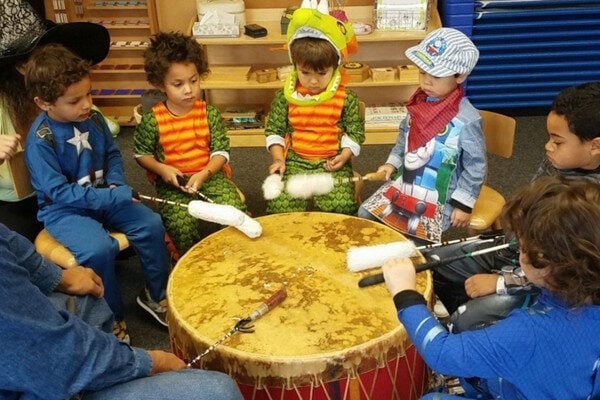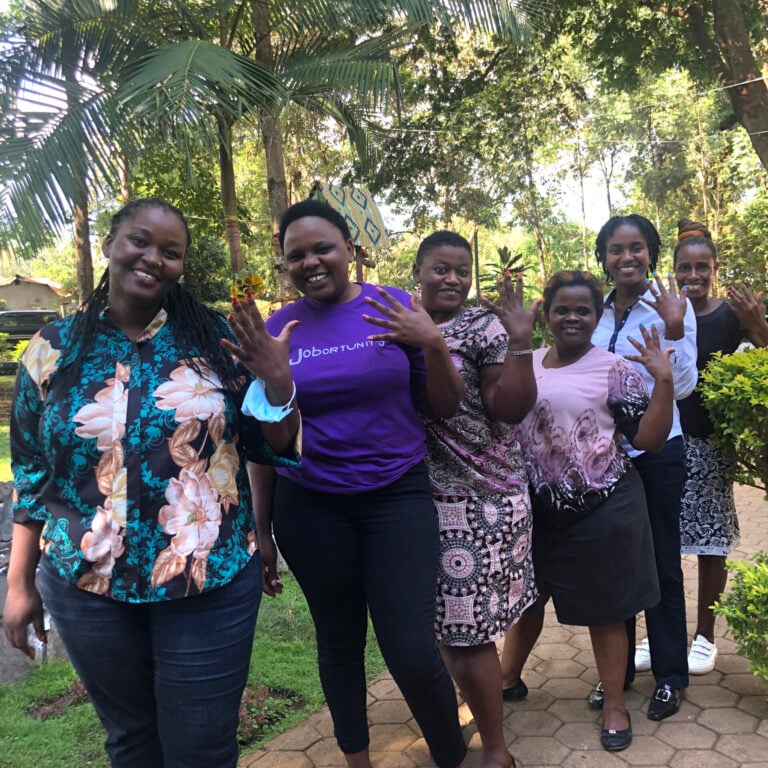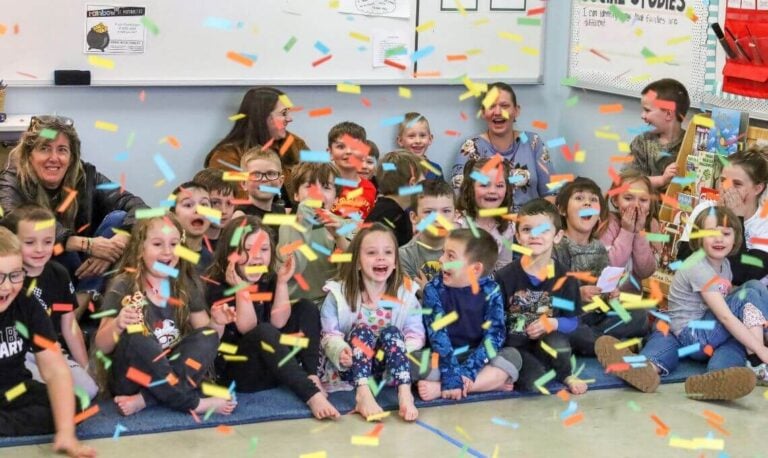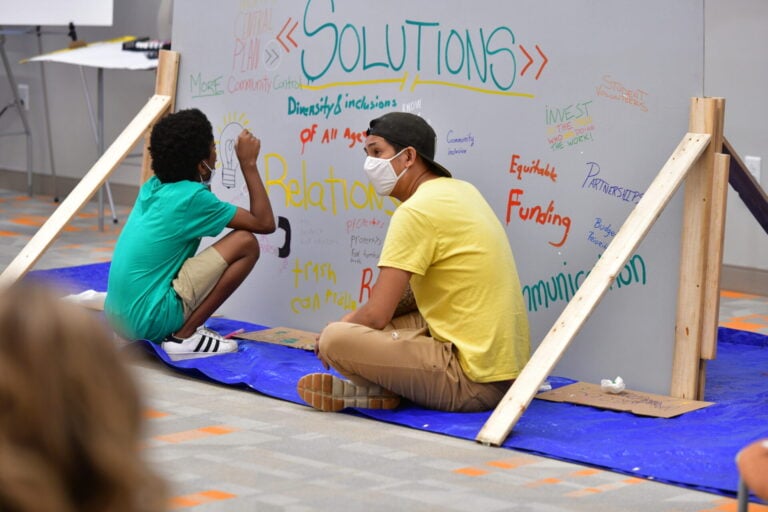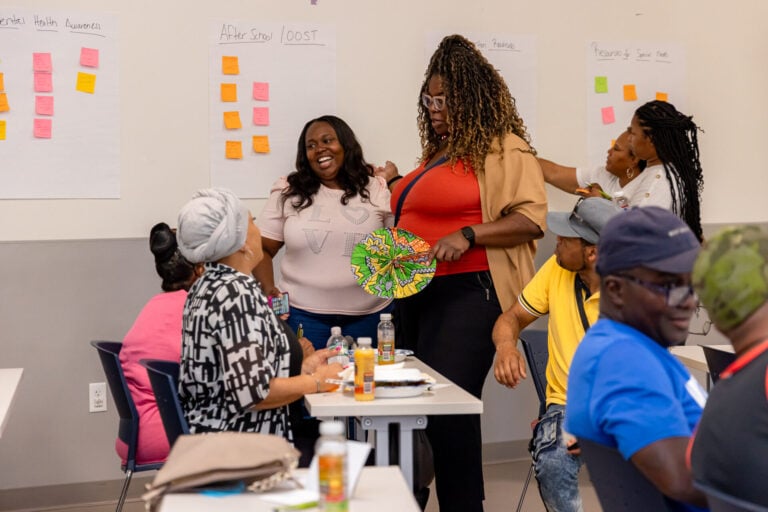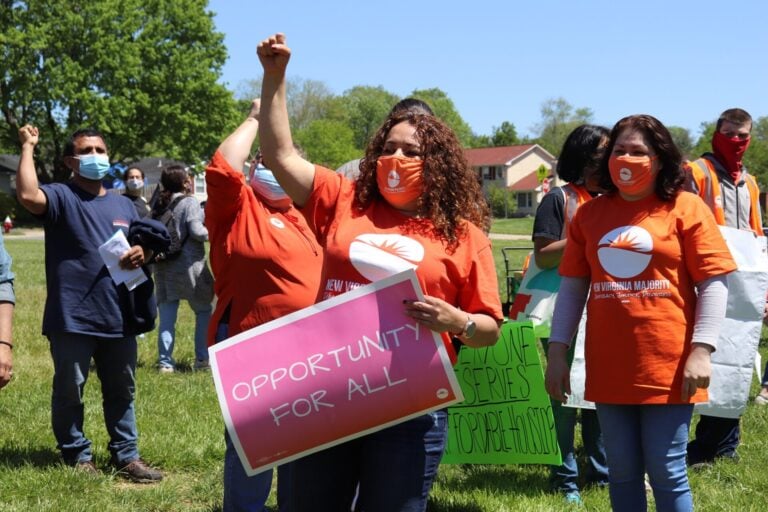More and more, the Conrad N. Hilton Foundation is turning to the experts.
For a landscape scan of a potential new grantmaking area, the Hilton Foundation hired a consultant who had lived experience in the foster care and juvenile justice systems. Through a sub-grant of its initiative on homelessness, the Hilton Foundation is working with a consultant who has experienced homelessness and a steering committee in which half the participants have had inconsistent access to housing. And the foundation is readying to directly hire more consultants with lived expertise.
“Ideally, we create a culture in our foundation where the first people we think of as experts on any given issue are the people who have lived in the systems we’re working to transform,” says Emily Skehan, the Foundation’s strategy officer.
This evolving approach centers people with lived expertise in collaborative problem-solving and decision-making. On a macro level, it promotes equity, inclusion, listening, and power-sharing. On the micro level, the Foundation sees it as a practical way to build toward sustainable solutions. It introduces, Skehan says, the “ability to take a step back and say, ‘Wait, this policy or this service or this best practice sounds right on paper, but how would a person living in the world actually experience it?’’
The Foundation has been on a learning journey around more intentionally engaging communities and people with lived expertise. Says Kristin Aldana-Taday, program officer for the Foundation’s Homelessness initiative. “The idea of bringing in consultants with lived expertise is something that program staff have been considering how best to do since we hosted a convening of people with lived experience across our US-based programs in 2019, where we had a conversation about ways to meaningfully engage people with lived experience in a way that is compensated, and, hopefully, integrated into our ongoing strategy.”
As part of its strategic refresh last year, the Foundation committed to engaging people with lived expertise whenever possible, including through internships and staff positions. Contracting with consultants has gained traction.
The consultant with lived expertise who worked on the Foundation’s landscape study the year before was engaged for four months, earning the same rate as a partnering consultant who had academic expertise. The consultant influenced the Foundation to think more broadly about how to fund in the field it was considering, including by taking into account trauma-informed solutions that would be more welcoming to young people across the systems —education, child welfare, juvenile justice — they encountered. The Foundation also applied such lessons from the landscape study about real-world, cross-sector impacts to some existing initiatives. In its funding around foster care, for example, the Foundation moved to a greater focus on holistic mental supports.
To prepare to directly hire consultants with lived experience to work on its Homelessness initiative, the Foundation is taking lessons from those working through the sub-grant to identify the challenges to and opportunities for fully incorporating and leveraging their expertise. The Foundation has learned it must be ready to provide support beyond compensation, not only for basic needs like child care and transportation, but also for the tools consultants typically need to perform their job, such as laptops and reliable internet service. The Foundation also knows it must be mindful of the so-called cliff effect consultants could face, a sudden decrease in public benefits that can occur with even a temporary increase in earnings.
Beyond potentially tricky compensation issues, the Foundation understands funders need to prepare in other ways, too. They must be ready to take on honest feedback and respond accordingly; be transparent about how the feedback will and will not be used; recognize that any one person or group is not representative of all people with lived experience in any given area; and acknowledge that the continuing power dynamic means consultants might have reservations about sharing criticisms.
Still, the Foundation is sold on the benefits of implementing best practices to properly include, compensate, respect, and partner with consultants who bring to the table the expertise and perspective necessary to create positive, sustainable change.
Says Skehan: “We are learning that if we don’t have people with lived experience leading or at least partnering in the work, then we aren’t doing our best work.”

